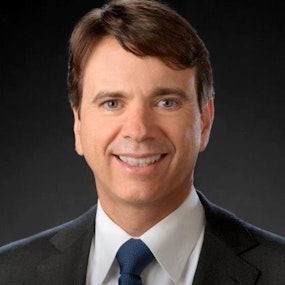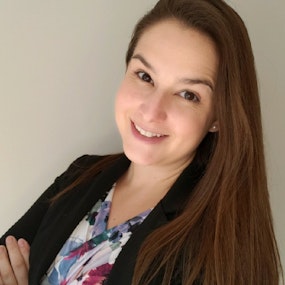ROBERT JOHNSON:
This is the award-winning Public Health Review Morning Edition for Monday, October 2, 2023. I'm Robert Johnson. Now, today's news from the Association of State and Territorial Health Officials.
MARCUS PLESCIA:
You really have to know and be familiar with sort of the counter arguments that the industry is going to come up with. And that's what we tried to do in the blog is just lay out you know, here are three main themes.
JOHNSON:
ASTHO Chief Medical Officer, Dr. Marcus Plescia, has spent much of his career working to reduce tobacco use. The latest fight: flavors that hook kids and target communities of color. He says public health can have an impact, but wants everyone to know how to respond when the industry tries to reframe the debate. In a new blog article, Plescia refutes common arguments against flavor bans using three talking points. The first tackles the notion that adults ought to be allowed to choose the products they use.
PLESCIA:
The vast majority 80-90% of people who use tobacco products started when they were kids, and that's where the tobacco industry focuses. So, whatever you might believe about adult decision-making, this isn't adult decision-making. This is taking advantage of children who don't have those refined decision-making abilities in place yet.
JOHNSON:
Also on the list, tobacco's contention that a menthol flavor ban will criminalize communities of color.
PLESCIA:
Nobody is prosecuting anybody for smoking a menthol cigarette, and we will prosecute shops and stores if they continue to sell things when it's against the law. I mean, that's how the, the actual enforcement of these kinds of laws and regulations is put into place. But there's no vendetta against individual human beings, and there's certainly no vendetta against people of color. In fact, the intent of these regulations is really to try to help protect that community and really address some of the health disparities we see.
JOHNSON:
Lastly, a familiar claim that e-cigarettes are a form of harm reduction.
PLESCIA:
It's an attempt to kind of reframe the conversation around adults. And that's not what we're talking about here. Electronic cigarettes are very, very appealing to kids. And once again, this is a really effective tactic to get kids started on a health habit and addiction that will then stay with them potentially for the rest of their lives.
JOHNSON:
All of this is included in a new ASTHO blog article now online. Read it using the link in the show notes.
Patient navigation services to increase cancer screening are cost-effective. That's according to the Federal Community Preventive Services Task Force. Dr. Alison Cuellar chairs the panel.
ALISON CUELLAR:
What we looked at was patient navigation through health care systems. And this can be structured in a number of different ways. It can include helping people with their appointments, it can be helping them with transportation or out-of-pocket costs or adjusting hours. And what we found are that these strategies are effective in increasing the screening rates for breast cancer, cervical cancer, and colorectal cancer.
JOHNSON:
Cuellar says these actions work to help make care more cost-effective.
CUELLAR:
We then also looked at the economic evidence, and we find enough studies to support that patient navigation services to increase breast cancer screening are cost-effective as well.
JOHNSON:
Access the report using the link in the show notes.
Also, today, public health agencies still have time to apply for funds to improve Retail Food Program Safety Standards. The National Environmental Health Association is working with the FDA to manage the grant process. Laura Wildey is the association's senior program analyst.
LAURA WILDEY:
This is the single largest investment in food safety history. The program supports state, local, tribal, and territorial regulatory agencies to achieve the retail program standards.
JOHNSON:
Wildey says the deadline to apply for a retail flexible funding model grant is October 11.
WILDEY:
The program standards define what constitutes a highly effective and responsive program for the regulation of food service and retail food establishments. And NEA's role in this is to award funding to jurisdictions to help them meet the standards.
JOHNSON:
Look for the link to the grant portal in the show notes.
Finally, this morning connect with everything happening in public health when you subscribe to ASTHO's Public Health Weekly email newsletter. There's a link to join the list in the show notes.
We'd also like to remind you to follow this newscast on your podcast player and ASTHO on social media. We're on LinkedIn, Twitter, and Facebook.
That'll do it for today. We are back tomorrow morning with more ASTHO news and information. I'm Robert Johnson. You're listening to the award-winning Public Health Review Morning Edition. Have a great day.







